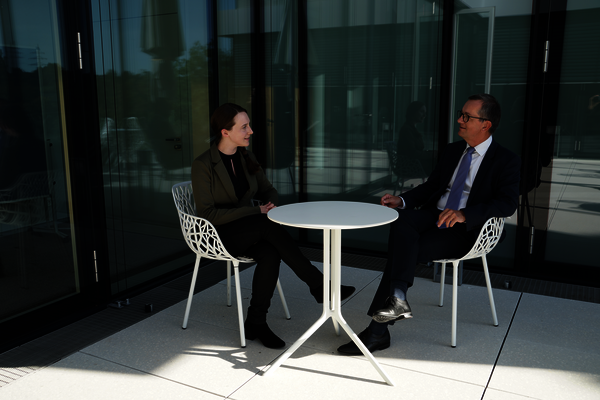Sustainability as a challenge and an opportunity
Sustainability is indispensable for companies, and since 2023, our company has integrated it into its corporate strategy through a dedicated Manager to meet growing demands from governments and customers.
Sustainability is no longer a voluntary task. It affects everyone in the world. The United Nations has decided to take important steps to preserve the basis of our existence. As a successful company, we in particular have a special responsibility in the coming years. Because it is about much more than an intact environment on our planet. Sustainability is our ticket to the future. We have reacted to ensure that the train does not leave without us.
Companies are obliged to address climate protection and develop strategies on how they want to work in a more resource-efficient manner in the future. It is not only the EU that demands sustainable action from companies, customers are also making corresponding demands. Firmly anchored in our Group strategy for several years, sustainability has been professionally organized by our company since 2023 with the help of our own Sustainability Manager.
What does sustainability mean for Erbe?
Sustainability means staying within planetary boundaries. In the corporate context, this includes ecological, social and economic aspects. Ecologically, it is about reducing greenhouse gas emissions. Social sustainability relates to the treatment of employees and working conditions. Economically, it means responsible corporate governance, e.g. through compliance management.
What has Erbe done so far?
Erbe has reduced its direct emissions, improved building management and electrified its vehicle fleet. Employees can charge their vehicles with green electricity. Erbe uses photovoltaic systems and produces some of its own electricity.
What does the company's CO2 footprint look like?
Erbe has calculated its greenhouse gas emissions annually since 2019. In 2022, Erbe Germany's emissions amounted to 88,000 tons of CO2, 80% of which came from purchasing. Erbe products require electronics, the production of which causes many emissions. Reduction is complex and long-term. Most emissions are generated in the upstream and downstream value chain. We need to become more sustainable together with our suppliers.
What are your other goals and measures?
Erbe begins with a materiality analysis to identify the most important sustainability issues. These are incorporated into both the strategic direction and the global sustainability guidelines, which will set Group-wide standards. We will also introduce an environmental management system in accordance with EMAS for the main production site.
What are the biggest challenges?
Challenges increase with the distance from the German headquarters. There is a need for knowledge transfer and data support. Our value chain is a major challenge, but Erbe has already taken steps towards a sustainable procurement policy.
How is sustainability compatible with profitable growth?
Customers are demanding sustainable products. We will meet this demand because we are convinced that customers will place even more value on sustainable products in the future than they do today. Erbe has found a path to a more sustainable future. Complex tasks await, especially in the supply chain. The company will roll out standards that have already been successfully implemented in Germany across the Group.
